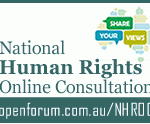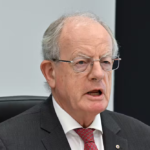The four who would be king
The so-called Smart21 Intelligent Communities are based on nominations submitted by communities large and small from around the world. Louis Zacharilla explains what it took for the four Australian participants to make the cut.
Four Australian communities made the Intelligent Community Forum’s list of the world’s Smart21 Intelligent Communities for 2015. Each of them appears on the list for at least the second time. Whittlesea, which is close to Melbourne, was first elevated to the status of Intelligent Community in 2007. Prospect and the Eastern Region Alliance, Ipswich and Sunshine Coast, also return to the list after at least one other appearance.
We are often asked by reporters and followers of the Intelligent Community movement’s work how a country that is relatively slow to rollout its national broadband infrastructure could have any communities on this list. Yet these four are now in a position to go toe-to-toe, in a sense, with 17 other communities for the honor of emerging from the next round (to be named in Taichung, Taiwan in January 2015), as a Top7 community.
Having studied the nominations put forward by these four; here is my take on why they were placed on the list, even as others with more broadband and more near-term success were excluded.
The Smart21 is called “smart” rather than intelligent for a specific reason. Smart is where you begin when you want your city to achieve the results necessary to survive in a “broadband economy.” This means that smart communities can be at a stage where they are still putting their infrastructure together and assiduously planning the path ahead. They do not need to actually be there yet. Because the 2015 theme is “The Revolutionary Community,” which called for nominees to reveal the depth of their planning, I believe these four nominees were able to do quite well. One of the Smart21’s mayors, Mayor Pisasale of Ipswich, said as much in a recent article.
What I personally liked is the degree to which these communities were willing to show us all of their “flaws” and blemishes. (Future nominees take note: this is more likely to get on our analysts’ good side than the hundreds of repurposed promotional brochures we receive!)
Although the communities were spread throughout the country, from the Melbourne area (Whittlesea) to Adelaide (Prospect and the Eastern Regional Alliance), several interesting elements arose. One that is really encouraging was in Prospect, where the Eastern Regional Alliance demonstrated the degree to which seven councils had extended their collaboration in a long-range attempt to move toward Intelligent Community of the Year status. All have been working on programs to stimulate interest in broadband and to ensure that the various stakeholders in the community understand the potential and the risks. Each also noted on their application form that “increasing collaboration among business, institutions and government,” were an active element of their advocacy programs.
In Whittlesea, the Council has leased or sold fiber capacity to four carriers and the city expects that 70% of premises will have access to 100 Mbps service by this time in 2015.
Prospect reported funding projects to create a local digital economy. The city is delivering digital training to hundreds of individuals and local businesses as it anticipates the rollout of fiber. This type of advanced planning has long-term payoffs.
One final reason for the elevation of these four communities is that the Intelligent Community Forum likes to follow the progress of communities over the course of years. As a think tank, we study and have learned how the regeneration of communities is an inter-generational experience and one that requires persistent development, investment and a long-term view. Whittlesea mandated greenfield conduit 13 years ago. That policy, like the rollout of Sunshine Coast’s free WiFi initiative in 2012, has begun to pay off. It led Sunshine Coast to be recognized as “the most web-savvy region” in Queensland.
Awards are wonderful and stimulate further investment and business attraction. We get that. But even more important are the fruits of all the efforts that will last far beyond the decade it has taken to get the communities on our lists. From our perspective, the opportunity to observe these largely aspirational communities as they move from aspiration to implementation, will tell us a great deal about how our modern economy is evolving.
Australia is clearly a land in transition.
Louis Zacharilla is a social entrepreneur who is credited with initiating the global Intelligent Community movement. As the Co-Founder of the New York-based Intelligent Community Forum, a global think tank and foundation which studies “energized communities” for the new century. He helps community thought leaders to understand and implement the best practices of the world’s leading communities. For more information visit www.intelligentcommunity.org.














